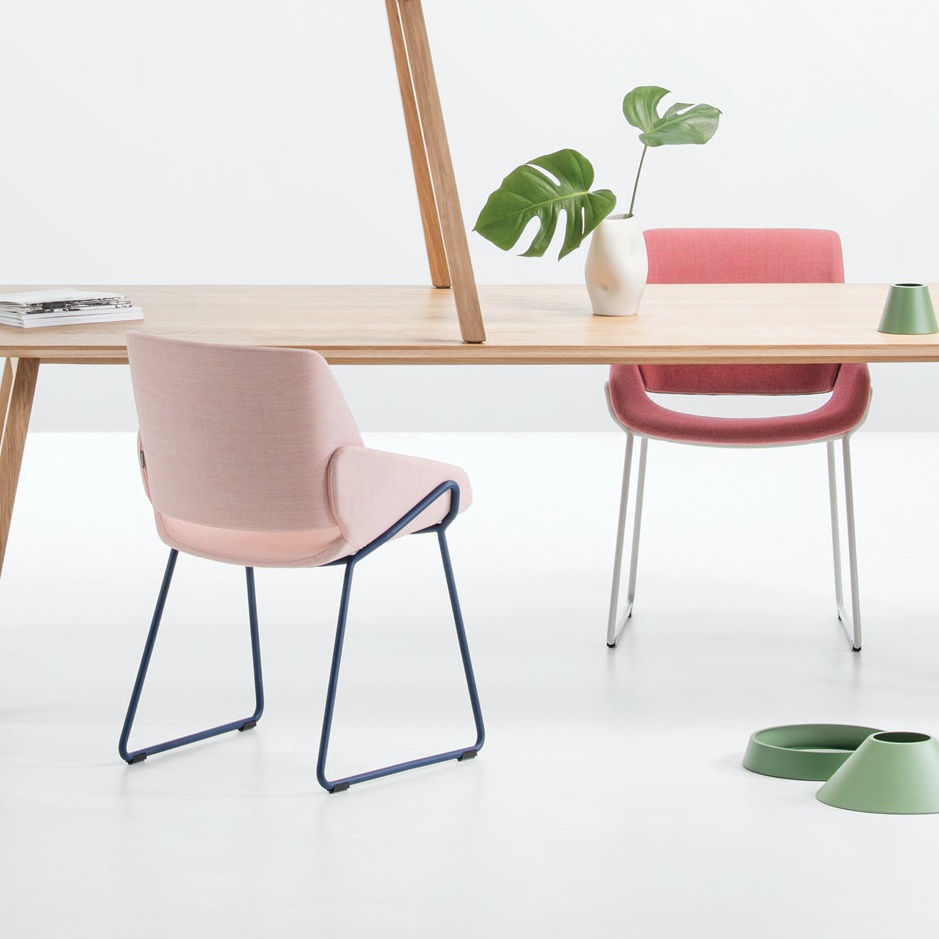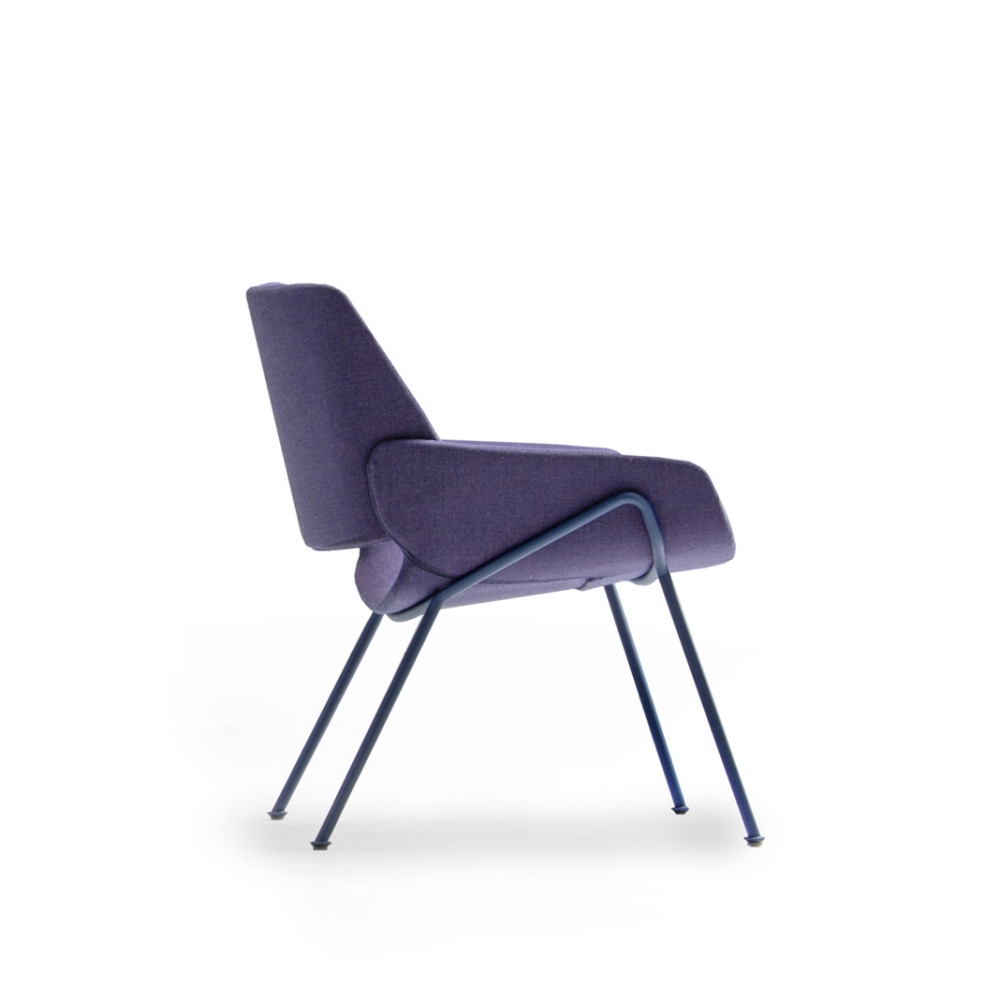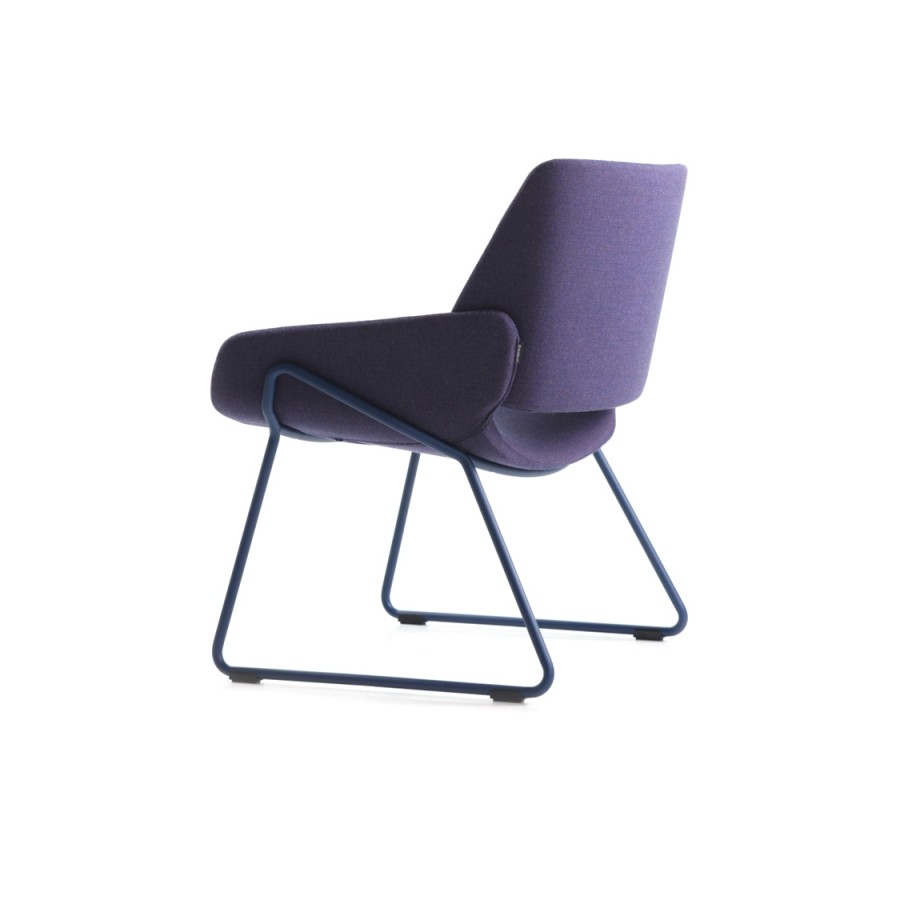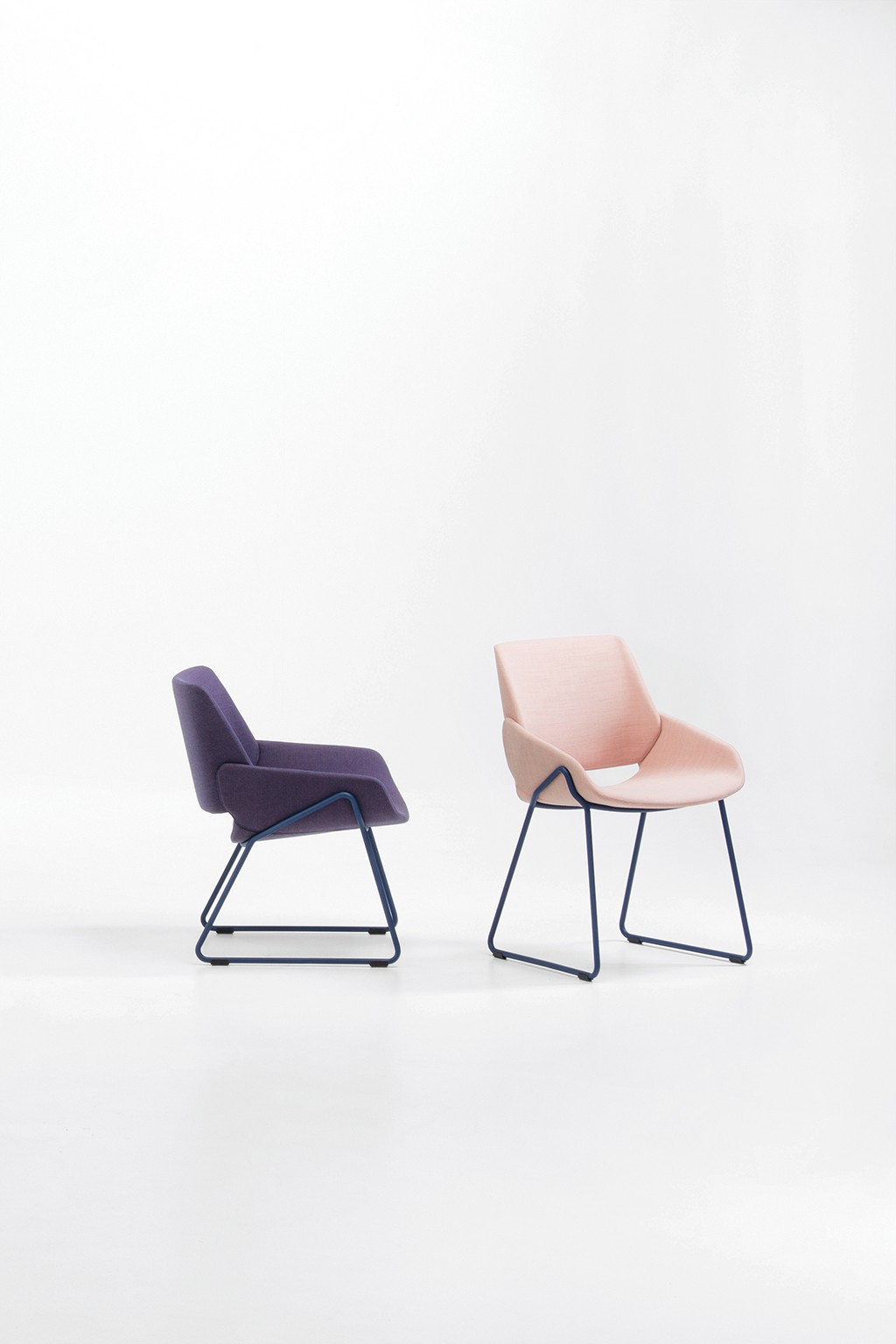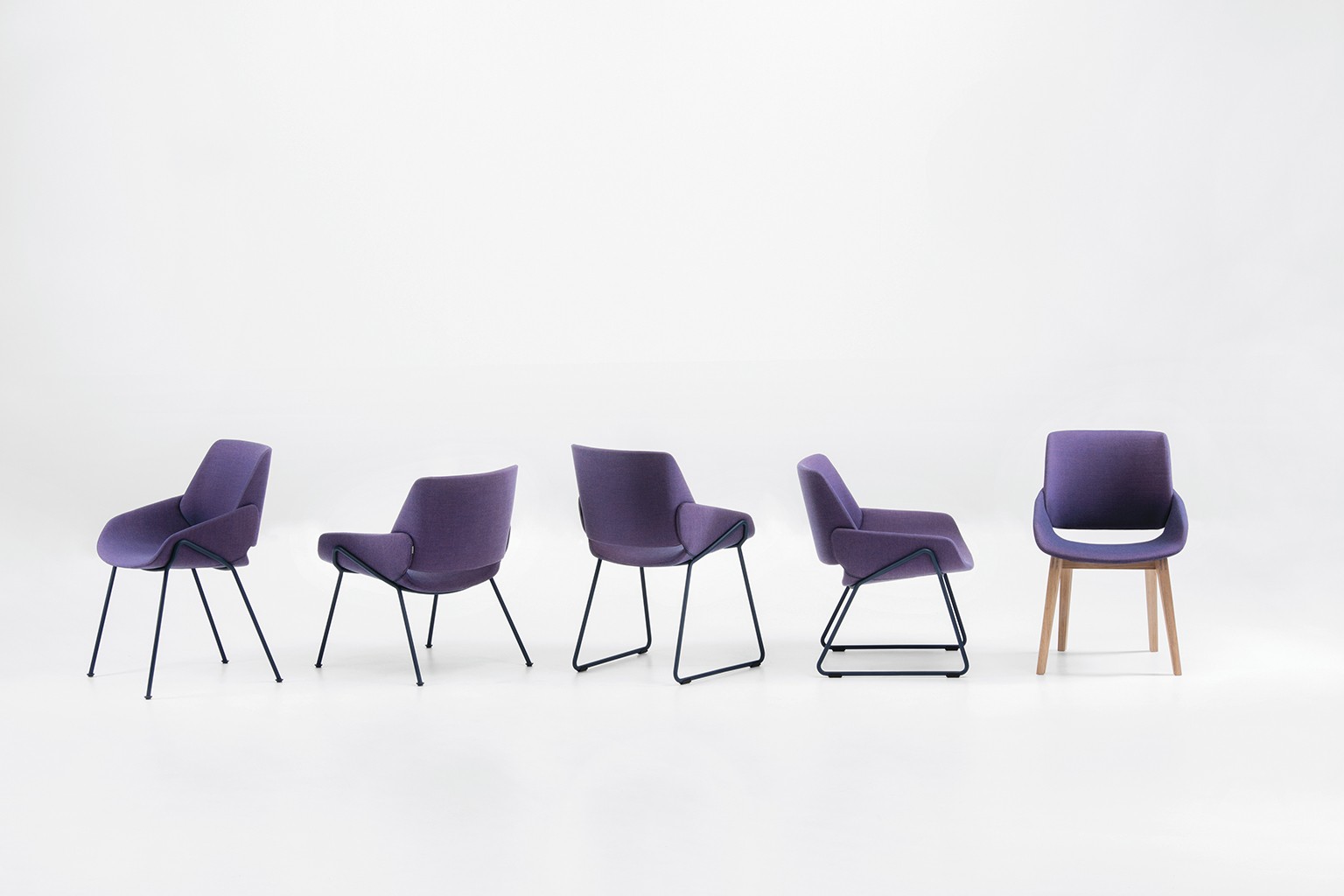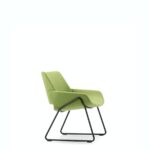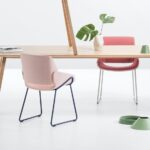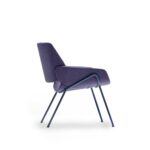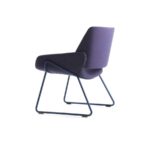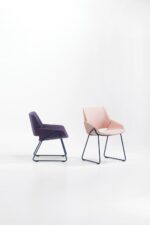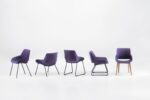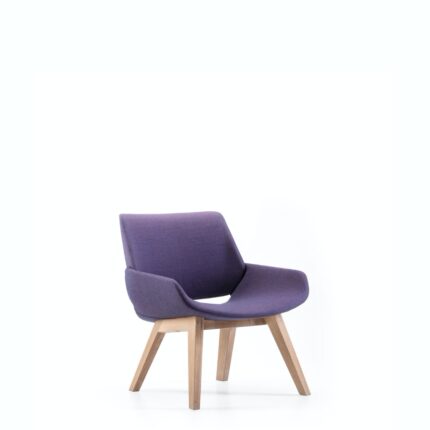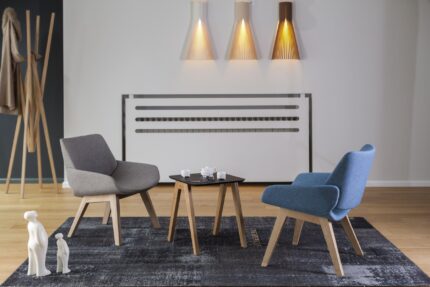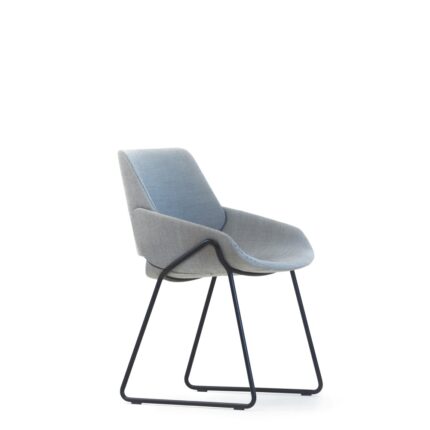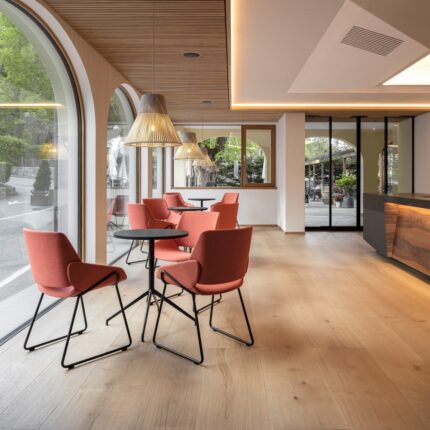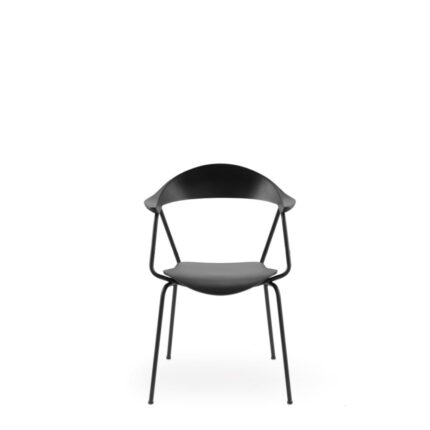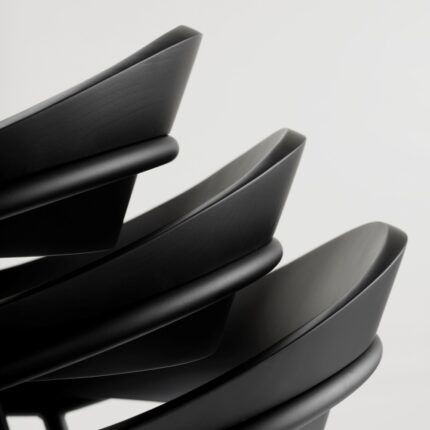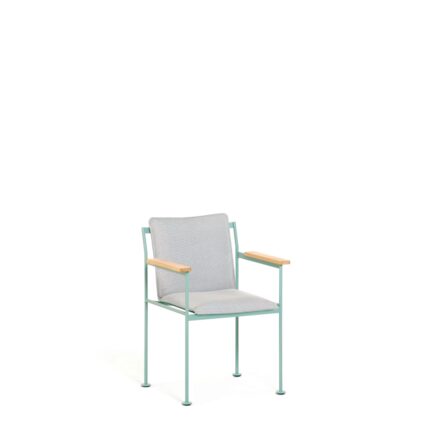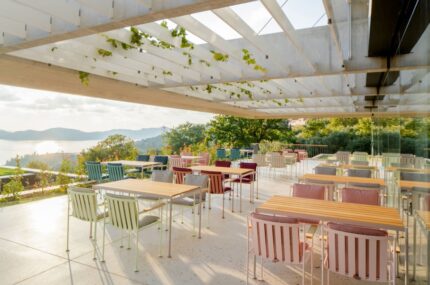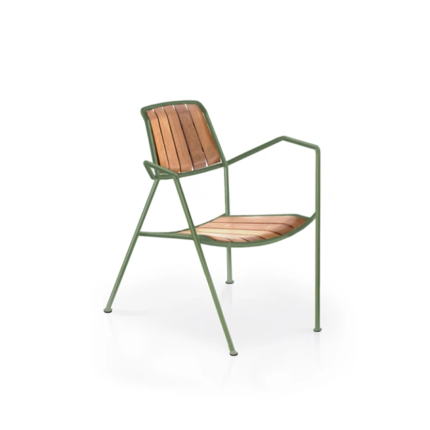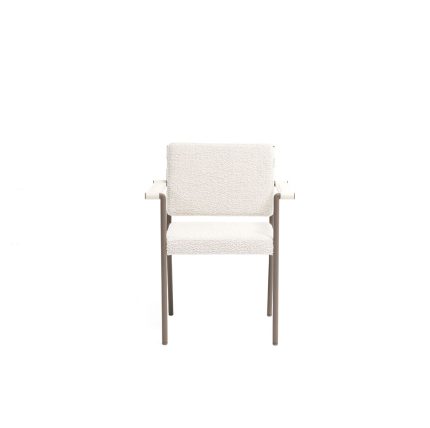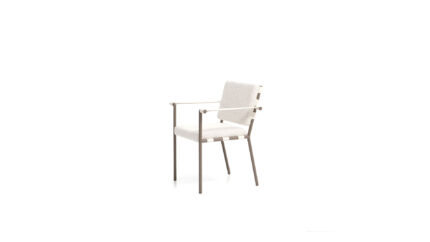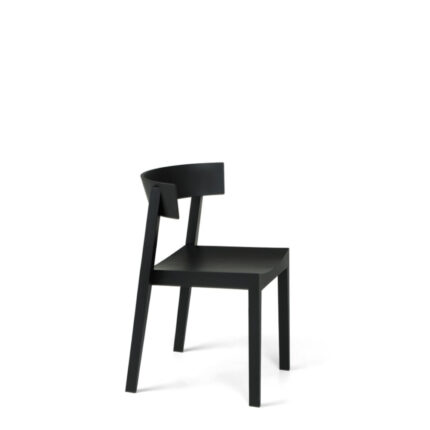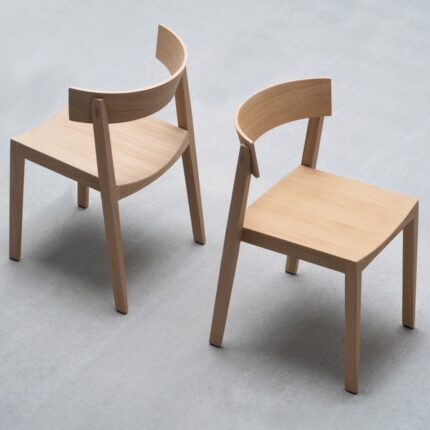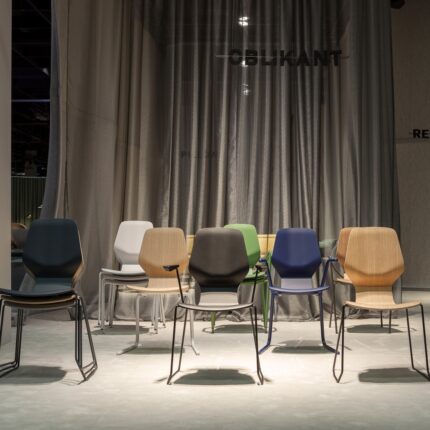Monk Lounge Chair - Steel Base | By Grupa
The easy chair’s shell is composed of two bent pieces of plywood upholstered in fabric, underneath which lies a simple structure of massive wood or metal. The armrest forms part of the seat and the whole shell appears to float independently of its relatively inconspicuous support, thus paying homage to retro furniture and the play between typologies. Monk is available in two variations, as a chair, and as an easy chair. Both share the same upper part of the structure, whilst the lower part (legs) is higher and upright in the chair, but lower in the easy chair. Together, the two Monks merge the daily functions of work and contemplation.
The armchair, chair, and coffee tables from the Monk collection are paying homage to retro furniture in the play between typologies. By the simple form and selection of material in massive wood and fabrics they merge the daily functions of work and contemplation. Monk collection has been completed with the dining table which thematically adds to the corresponding chair. The elegance of the table made of massive oak has been achieved by narrowing wooden legs towards the bottom, and tabletop towards the edges.
Technical Info
- structure: bent plywood
- cushion: hr foam, wadding
- frame: metal tube Ø16 mm + powder coating
- upholstery: fabric, leather
Dimensions
- 24"w |26" d | 27"h | 14.6 seat height


Grupa
Members of Grupa are designers Filip Despot, Ivana Pavić, and Tihana Taraba. For a number of years, they have been collaborating with Croatian and foreign furniture producers and since 2010 they have started developing their own brand named the Grupa products, which are distributed on the international and European markets. They have been exhibiting domestic and international juried exhibits and their works were published in important international and Croatian publications. They have also been awarded many prizes.
Prostoria
We tend to perceive furniture as something abstract, created on designers’ desks and then produced, branded and placed on the market by companies with different statuses and reputations. In fact, relations inside the contemporary globalized furniture industry are becoming more and more fragmented with less and less opportunity for complete dedication to synergies and collaborations… Prostoria, as a young company whose catalogue already comprises some new icons such as the Polygon armchair and the Revolve transformable sofa, stands as an example of a different and more traditional approach based on the evolution from the local factuality and logical clustering of all actors involved in the production process.
Rapid development of Prostoria, formerly known as Kvadra, a company which has come a long way, from “starting from zero” to positioning itself as the leader and promoter of new ideas in only a few years time, is a story about the reintroduction of continuity both in Croatia and Central Europe, a region with vital but insufficiently recognized design scene and remarkable tradition and knowledge of the furniture industry. Those elements served as latent potentials that provided grounds for continuation and had to be activated.
Since the beginning, Prostoria has been developing an integrative approach, functioning as a collaboration platform that nourishes and stimulates continuous exchange of knowledge and experience between all the actors participating in the production of furniture. A dynamic workshop ambience has been created offering opportunities mainly to young designers to explore their ideas in excellent conditions and bring them to the highest level of design, functionality and technological artisanship. Many products have been developed over longer periods of time surpassing a number of iterations until reaching their final form, which would be impossible without the adequate support combining the contemporary technology and meticulous craftsmanship and handwork of the highest quality. Predominantly local materials are used, especially solid wood, and most of the production takes place within the company itself or in collaboration with local cooperatives.
While the company’s catalogue also offers furniture based on tested models, Prostoria shows strategic and even passionate dedication to research-based design, convinced that authenticity has its place on the market but presents a special challenge in the times when it seems almost impossible to create truly innovative and fresh concepts. For that reason, Prostoria’s social responsibility and specific position have to be observed as a contribution to the evolution of design and readiness to take the risk in order to reach new values for the benefit of users and the culture. Thus, Prostoria stands as a project inside of which designers grow together with the company on the grounds of mutual trust and shared goals.




